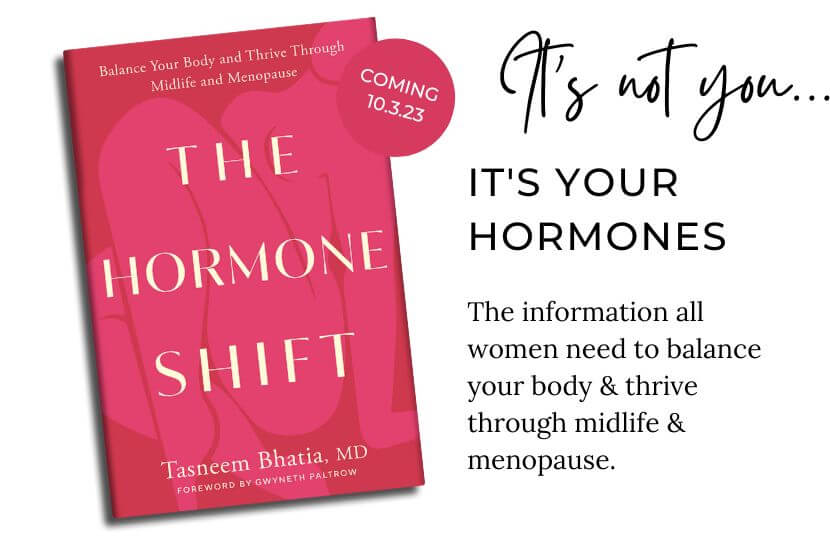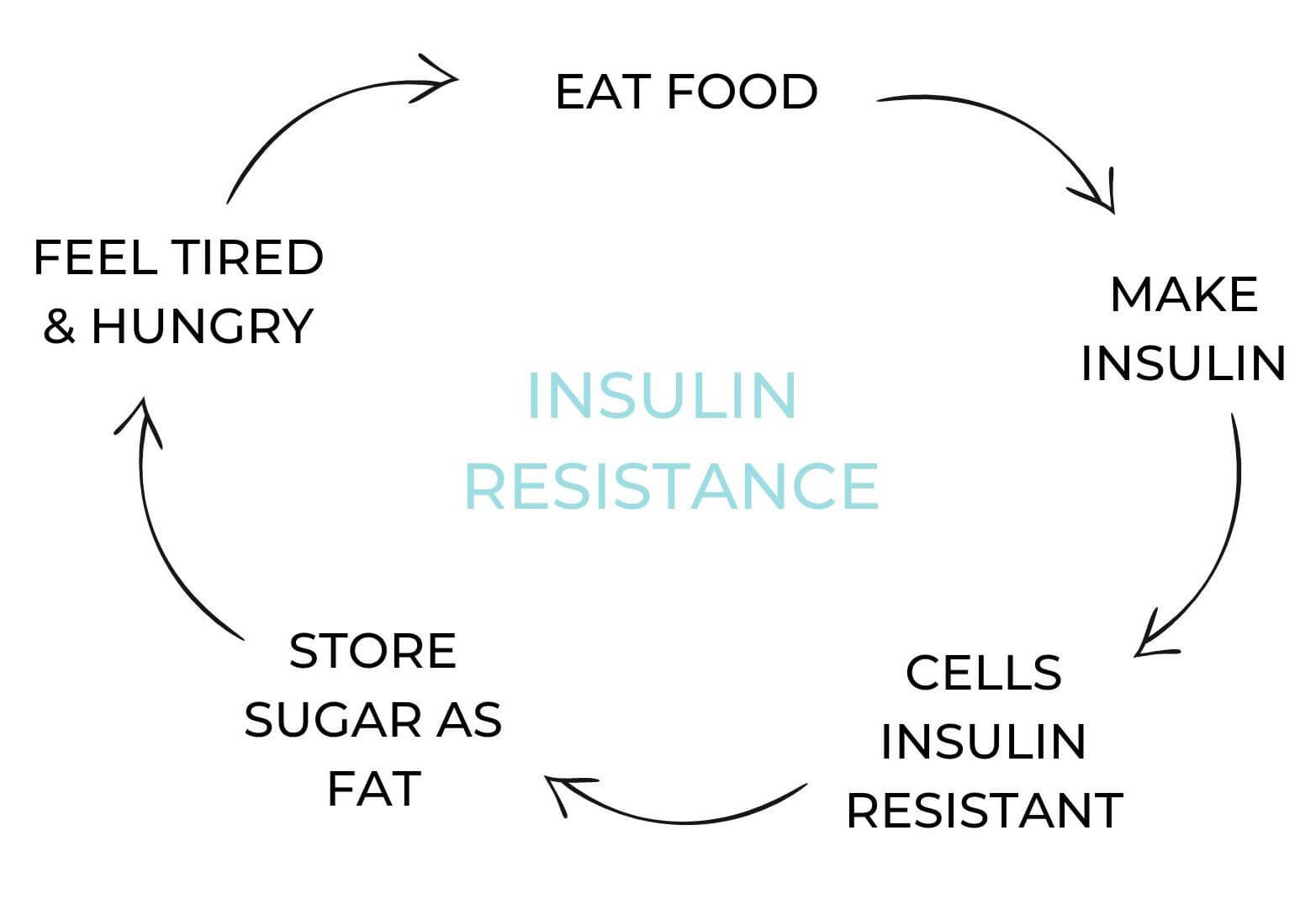Navigating Perimenopause: Your Guide to Sustainable Weight Loss
Perimenopause isn’t for the weak, and no one knows that better than the women who are in the thick of it. Aside from all the invisible symptoms, like insomnia, hot flashes, and feeling like someone has hijacked your mood, there’s a lot happening with your metabolism.
And no matter how much patience you have, perimenopausal weight gain remains a frustrating factor that makes coping with all the other changes that are going on in your body a lot harder.
Women in midlife can expect to gain about a pound and a half per year, and since hormonal shifts during perimenopause can last upwards of 10 years, that adds up fast.
Perimenopause can cause weight gain even if you already have healthy habits.

Hormonal Changes that Affect Metabolism
As estrogen and progesterone levels fluctuate, the body’s metabolism may slow down, making it challenging to shed unwanted pounds. Many women also experience an increase in belly fat storage, which further adds to their frustration.
Estrogen and Metabolism
Estrogen has a direct influence on metabolism by enhancing insulin sensitivity and promoting fat utilization for energy. As estrogen levels decline in perimenopause, metabolism may slow down, making it easier to gain weight and harder to lose it (1). Some evidence even suggests that estrogen inhibits some cravings, which means that the less estrogen you have, the more intense your food cravings become (2).
A decline in muscle mass may also decrease the amount of calories your body can burn at rest, called basal metabolic rate (BMR). This is why some women in perimenopause experience weight gain even if they are eating and exercising normally.
Belly Fat Storage
Progesterone, known for its calming effect, also impacts weight distribution. When progesterone levels drop, cortisol (the stress hormone) can rise, leading to an accumulation of belly fat. (3)
In premenopausal women (so before any hormonal shifts) extra body weight usually accumulates around the lower body—think posterior and thighs.
But during perimenopause, the body’s estrogen levels begin to decline, which prompts more fat to be stored around the belly.
Related: Is Cortisol Affecting Your Ability to Lose Weight?
Insulin resistance
One major factor that contributes to excess weight gain in menopausal women is insulin resistance, caused by slower estrogen and progesterone production. Insulin resistance makes it harder for the body to process carbohydrates and sugar.

Before perimenopause and menopause, women have even greater insulin sensitivity than men of the same age, but because hormonal shifts disrupt glucose metabolism, the risk of conditions like type 2 diabetes and weight gain increases significantly (4).
Basically, insulin resistance makes it harder for your cells to use the energy from food you eat (particularly sugars & carbs). Insulin resistance also drives weight gain, particularly around the midsection.
You can read more about insulin resistance and hormones here.
Lifestyle Changes that Support Weight Loss:
Losing weight during perimenopause requires a slightly different approach than what you’ve relied on in the past. We’ll dig into these changes in more detail below, but at a glance, here are the areas that will look a little different during perimenopause for a healthy weight:
- Rest & recovery in the form of sleep and rest days between higher intensity workouts
- Stress reduction to reduce cortisol dysregulation
- Protein to protect from muscle loss and enhance metabolism
Listen: How to Gain Muscle & Lose Fat at 40 with Stephen Perrine and Heidi Skolnik
Tips for Sustainable Weight Loss During Perimenopause
While the hormonal changes during perimenopause can pose challenges for weight loss, adopting a holistic approach can make a significant difference. Here are the best ways for women to lose weight during this transformative phase of life:
Balanced Nutrition
Focus on a well-balanced diet rich in whole foods, including:
- Lean Proteins: Incorporate lean protein sources like chicken, fish, tofu, or legumes into your meals. Protein supports muscle maintenance and keeps you feeling full for longer.
- Colorful Fruits and Veggies: Packed with essential vitamins, minerals, and antioxidants to combat the effects of oxidative stress (5). Reach for leafy greens, berries, and cruciferous vegetables like broccoli.
- Healthy Fats: Avocados, nuts, seeds, and olive oil support blood sugar balance and fight insulin resistance to reduce belly fat.
- Fiber-Rich Foods: Whole grains, oats, and vegetables rich in fiber are queen during perimenopause. They support hormone detox and healthy digestion.
Mindful Eating
Many women find success with swapping out high-carb foods for lower carb options. Think cauliflower instead of potatoes, and a salad instead of pasta as a side.
Strength Training
Bodyweight exercises (or even heavy lifting) 2 to 3 times per week can transform your body, giving you a toned physique with protective muscle to boost metabolism. Aim for at least 150 minutes per week (2).
Manage Stress
High stress spikes cortisol which promotes abdominal fat storage. Yoga, meditation, deep breathing, or spending time in nature can positively impact cortisol levels and belly fat storage.
Sufficient Sleep
Aim for 7-9 hours of quality sleep each night. A well-rested body functions optimally, and sleep impacts hormone regulation and metabolism.
Approach fasting with caution
Fasting can be an effective weight loss tool for some people, but it requires careful monitoring. During perimenopause, adequate protein & stress reduction are key, and fasting may not be the right choice to support your goals.
Seek Professional Guidance
If you find weight loss during perimenopause challenging, consult with a qualified holistic doctor experienced with perimenopause & menopause hormone changes. They can provide personalized guidance and support.
Related: Berberine vs. Ozempic: A Natural Alternative to Weight Loss Meds
A note about hormone changes and weight loss
Trying to lose weight too quickly during perimenopause, such as through extreme diets or high-intensity workouts without recovery, can do more harm than good. The body needs time to adjust to any lifestyle changes. Make sure to avoid burnout; the body is going through enough changes during this period.
Perimenopause doesn’t have to be a struggle when it comes to weight loss. Understanding the hormonal changes that occur during this period and knowing which lifestyle changes can support healthy weight loss is essential. Prioritizing sleep, reducing stress levels, and consuming enough protein are crucial steps. Avoiding extreme diets or workouts and making gradual lifestyle changes could be the key to maintaining a healthy lifestyle during perimenopause, leading to successful weight loss. Remember, it’s the little steps that lead to big changes!
Resources
